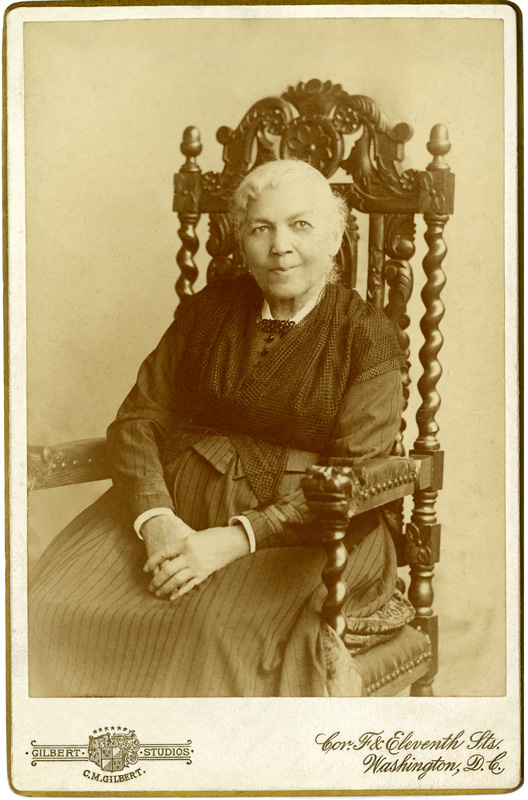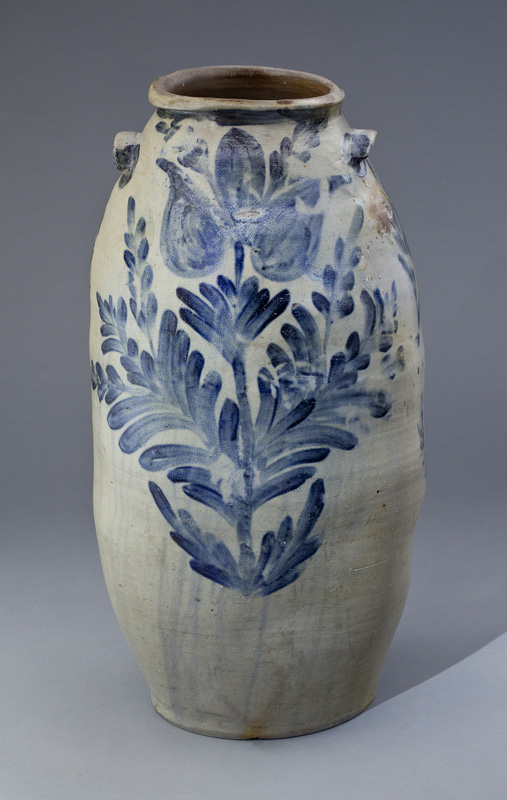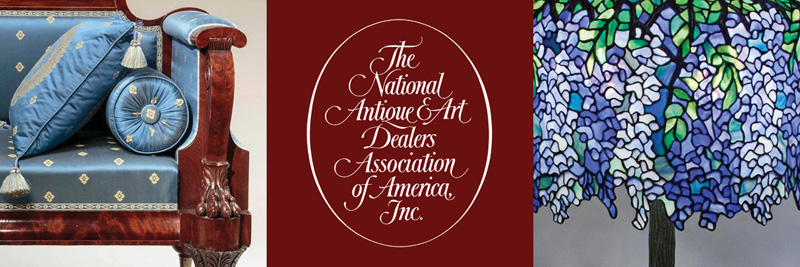
Museum of the African Diaspora
Although a contemporary art museum, one of the Museum of the African Diaspora’s most important online features is a historical audio production titled Slavery Narratives. The powerful stories of nine enslaved people—Tempe Herndon Durham, Mary Prince, and Harriet Jacobs among them—are told by voice actors, with additional narration by Maya Angelou. Transcripts of the stories are available on each page; simply scroll down and click “Transcript” in the middle of the screen.
The Slavery Narratives website also includes a valuable list of organizations and reference sources for researchers of slavery and its effects. Included is one of our previous Digital Destinations, the Schomberg Center for Research in Black Culture, as well as the University of North Carolina at Chapel Hill’s Documenting the American South publishing initiative, a less famous but no less valuable resource that helped shape MoAD’s Slavery Narratives project.
MoAD’s contemporary offerings are no less affecting, and celebrate African American artists and artistry. A dedicated YouTube channel features hours of content—from performances to virtual exhibition tours—and showcases the breadth and depth of what can be found at the museum.

Old Salem Museum and Gardens and Museum of Early Southern Decorative Arts
More than three years in the making, the 2020 issue of the Journal of Early Southern Decorative Arts presents new scholarship about the lives and legacies of free and enslaved African American artists and artisans.
The journal is free to read online, and two of the nine articles in the 2020 volume have been released thus far. In the first, Decoding the Woodwork of White Hall: A Network of Enslaved Carpenters and French Huguenots, Katherine McCarthy Watts shares her extensive insight into the dazzling woodwork on display at White Hall Plantation in Berkeley County, South Carolina—all of which was carved by enslaved craftsmen. In the second, “. . . my friend David Jarboe . . .”: The Unfinished Portrait of an Alexandria Potter, Angelika R. Kuettner discusses the contributions of African American potters to the field of ceramics—specifically to the tradition of stoneware production in Virginia. Be sure to click the images to zoom in; you can further expand them by selecting the arrow icon at the bottom right.
New articles from MESDA’s 2020 journal by Sharon Cox, Brenda Hornsby Heindl, Geoff Hughes, Tiffany Momon, Lauren Northup and Gary Albert, Robert Self, and Corbett Toussaint will be published monthly.
Past issues of the journal are available online, back to 1975, and bound copies can be ordered on demand.

Online Art and Antiques Fair, hosted by the National Antique and Art Dealers Association of America, June 24–July 8
The National Antique and Art Dealers Association of America launches its inaugural online Antique Fair at 12 PM EST on June 24. The fair will include over three hundred works, including fine art, sculpture, jewelry, wallpaper, and illuminated manuscripts, among other offerings. Highlights of the fair include an important Tiffany Studios Wisteria table lamp from about 1903, a rare Philadelphia carved mahogany box sofa from about 1830 attributed to Anthony Quervelle, and a rare chocolate pot dated 1703 and made by Peter Pemberton of Chester, England.
A dealer list is available by clicking “View Show by Dealers” here, and the option to browse by listing will be available when the fair begins on June 24 by clicking “View Show by Listings.”
Real-world Destinations:
Jamestown Settlement and American Revolution Museum, Yorktown, Virginia
With the museum’s re-opening on June 24, the Forgotten Soldier: African Americans in the Revolutionary War exhibition will reopen to the public and run through July 8.
The exhibition reviews the role of enslaved and free African Americans during the American Revolution through rare documents, artifacts, and art, as well as a couple exciting loans. The presence of Dunmore’s Proclamation of 1775, a promise by the royal governor of Virginia that any enslaved person who would fight for the crown would be given freedom, lent by the Library of Congress and a copy of the Treaty of Paris, Article 7, New York, 1783, on loan from the US National Archives—make this a particularly special exhibition. A contemporary art piece by Titus Kaphar is also featured and provides an important interpretation of the exhibition from a modern perspective.
Saint-Gaudens National Historic Park, Cornish, New Hampshire
Starting in 1885, American sculptor Augustus Saint-Gaudens lived seasonally at the house that’s now part of his namesake park. From 1900 until his death in 1907 he lived there year-round, accepting commissions from the likes of Teddy Roosevelt. The grounds include several bronze sculptures, and trails that loop through the surrounding wood. While the buildings remain closed due to Covid-19, the park’s grounds and trails are open for outdoor recreation. Visitors are to follow directives from the CDC and state and local health authorities, including wearing a mask and maintaining social distance.
The Saint-Gaudens Memorial, an organization that partners with the National Park Service to operate the park, is also hosting six streamed concerts (three in partnership with the West Claremont Center for Music and the Arts) that will become available here as they happen. The sculptor-in-residence for 2020, Zoe Dufour, is also hosting virtual visits from 12–1 PM EST Wednesday through Sunday, now through mid-October via the Saint-Gaudens Facebook page.
Morven Museum and Gardens, Princeton, New Jersey
Like at the Saint-Gaudens National Historic Park, the gardens of the Morven Museum and Gardens are open to the public with CDC recommendations in place. Several socially-distanced events throughout the garden are being coordinated by the museum that consist of forty-five-minute docent-led walking tours. Registration for tours of the grounds can be found here and registration for tours of the gardens, here. Registration is required: no walk-ups are permitted at this time. Note that member events for the Friends of Morven are scheduled from June 24 through July 3.
Self-guided tours—supported by the new interpretive signage installed on the grounds—are also available for reservation; you can email info@morven.org or call to confirm your visit.
